- Home
- Barry Lyga
The Flash: Hocus Pocus Page 9
The Flash: Hocus Pocus Read online
Page 9
“Enter freely,” she beckoned, “and unafraid.”
A part of Barry screamed at him to turn and run, to get away from Madame Xanadu and her craziness, her sheer irrationality. But that part was small and weak, and he knew it. He knew from the moment he saw the OPEN sign that he would walk in and sit down. Nothing could stop him. Not even himself.
Sliding into the chair across from her, he noticed that she’d changed not at all since the last time he’d seen her.
“Welcome back,” she said in total sincerity.
“How did you know my name?” he demanded. “I never told it to you.”
She pursed her lips; her eyebrows arched in amusement. “How do you think?”
Barry knew quite a bit about so-called mind reading. He’d studied it for a case years ago involving a hypnotist. There was something called cold reading, when a “psychic” used very subtle conversational cues and verbal manipulations to get people to reveal things about themselves without realizing it. For example, one technique was called “shotgunning” because it relied on spreading a lot of information over a large area, much like a shotgun blast. So a so-called psychic might say to a group of people, “I see with my third eye that someone here has a conflict with an older woman.” Most people had an older woman in their lives. And conflict could be anything from I hate her to She ate the last of the cold cereal this morning. The “psychic” fires a blast like that, and a bunch of people think, She’s talking about me!
Even one-on-one, using vague, probing statements—“I sense you are dissatisfied”—and then carefully studying the subject’s responses helped a phony psychic fine-tune his or her patter and zero in on the mark’s specifics. There were so many ways to “read someone’s mind,” all of which involved deception, none of which involved actual magic. The more you gave away, the easier it was for the “psychic” to get you to reveal even more. A vicious cycle.
“I can think of a couple ways that don’t involve the supernatural,” he told her.
“Then surely one of them is your answer.”
Her calm and measured tone infuriated him. Yes, there were ways she could have gleaned his name. A hidden camera somewhere with facial recognition software, for example. But it wasn’t likely. She had some kind of trick up her sleeve, Barry knew.
“I don’t believe in magic,” he told her. “I’m a scientist.”
“I don’t believe in magic, either.”
He gestured to encompass the entirety of the inside of her shop—the candles and the cards, the mason jars and the eerie knickknacks. “Then what’s all this?”
She mimicked his gesture. “All this is how we converse. It is a metaphor. Was there literally a Big Bang at the beginning of the universe, or is that just a convenient way for you to understand the origin of our world?”
He pondered that for a moment. “Were you in Central City a few years ago, when the particle accelerator blew?” If she was a meta, that could explain a lot.
“I wander and roam.” She leaned forward intently, those green eyes captivating him. “Discussing my past and my future is, I promise you, vastly less interesting than discussing yours. Isn’t that why you’ve come here?
He sat back and folded his arms over his chest. Before he could stop himself, he told her the truth: “I don’t know why I’m here, honestly. But there’s nowhere else to go. Not right now.”
“You have friends.” It was half statement, half accusation.
“I have the greatest friends in the world. But they’ve done everything they can for me.” Cisco and Caitlin were trying to crack the nanite problem. Iris was his rock, his port in the storm that Pocus had created. Wally was patrolling the city as Kid Flash. And Joe was probably even now conspiring to persuade Singh to give that crazy, unreliable Barry Allen another chance. He couldn’t ask for better, more committed friends. If all it took was the love of good people to solve his current crop of problems, the knots would have been untangled more quickly than the Flash could run.
“You rely on your friends a great deal.”
Xanadu’s tone was neutral, but Barry felt recrimination in her words. He sat upright. “Don’t most people?” he said defensively. “You don’t know my friends. They’re some of the most accomplished, passionate people in the world. They—”
“I meant no insult, to them or to you,” she said, holding up a hand to quiet him. “I am simply looking for the root of your problem and its solution. If your friends are as capable as you say they are, yet they cannot help you, then what does that tell you about your current predicament?”
Barry worried his lower lip, thinking. What was she getting at? His “current predicament” was something they’d never encountered before. It was hardly the fault of the crew at STAR Labs that Hocus Pocus had mastered a technology so advanced that they couldn’t figure out its weakness—or even if it had a weakness.
A sharp trill of panic crackled through him like electricity. It had to have a weakness, right?
“I’m not sure what you’re getting at,” he told her. “Shouldn’t we just try your cards again?”
“Are you so desperate that you’ll try the magic you claim not to believe in?” She favored him with a knowing grin, her eyes sparkling.
Barry blushed. Was he that desperate? Or maybe he was just looking for some kind of affirmation. He knew how these boardwalk psychics worked: They told you what you wanted to hear. If you felt guilty because you never got the chance to tell your grandmother how much you loved her before she died, the psychic would conveniently “channel” your grandmother’s “spirit” and tell you Grandma had known all along and everything is fine, and blah blah blah, and you can go on with your life guilt free.
In that moment Barry realized just how far he’d fallen. He was seeking solace and succor from a promenade huckster, from this “Madame Xanadu,” whose real name was probably Jane Smith. Those crazy, almost glowing green eyes were probably contact lenses. If he turned on the lights in this place, he’d probably see that all the spooky accoutrements were nothing more than cheap plastic baubles bought half off at an after-Halloween sale.
“Thanks for your time,” he said finally, rising, “but this was a mistake.”
She didn’t move a muscle. Didn’t even look up at him. Staring down at the table, she said, “You always try to go faster.”
Halfway to the door, Barry paused. “What did you say?”
Still she did not move. “You always try to go faster.”
“What do you mean by that?” It was true. As the Flash, more speed was always uppermost in his mind. How could he move faster, go harder, save more people, wring more efficiency out of every last microsecond?
She said nothing, gave no answer. Just kept her gaze fixed on the table.
“What are you talking about?” he demanded. “How much do you actually know about me? Who are you?”
Still nothing. Fuming, Barry pulled out his chair and flung himself into it. “What’s going on here?” His tone, belligerent, shocked even him.
With grinding slowness, Madame Xanadu raised her eyes to his. The green spun from emerald to forest to a glowing sort of lime that entranced him. “What’s going on here?” he asked again, this time quietly and with great respect.
“You seek greater speed,” she told him. “Always running. Always looking for the quickest path to the horizon.”
“That’s just . . . what I do.” He didn’t know what she was getting at. The equation was so simple that it needed no explanation: Flash = speed. No variables. Only constants.
“And perhaps now is the time to forsake that.”
“And do what? Stop trying to be so fast? How does that help? What does that solve?”
“Go further. Dig deeper.”
He pondered. What was further or deeper than not trying to be faster? It occurred to him instantly but seemed so ridiculous that he was mortified even to say it out loud. Finally, with a good dose of confusion, he said, “You want me to try to . . . be slow
?”
Lips quirked into something like a smile, Madame Xanadu produced her deck of cards. As she gave them a thorough shuffling, she said, “You wanted to see your future, correct?”
“Why are you changing the topic?”
“Am I?”
Barry groaned, annoyed. But when Madame Xanadu extended the fan of cards to him, he reached for one anyway.
“Only one this time,” she admonished.
He hesitated, his fingers hovering at the spread of cards. “Why?”
“You get only one future.”
“That’s not how I understand it. There are many possible futures, depending on the choices we make.”
“Many futures may happen,” she said with a shrug, “but only one will happen.”
Barry surprised himself by being nervous about which card to pick. Stop being an idiot, Allen. She’s a carnival trick, that’s all. She’s not determining your future.
He chose a card and laid it faceup on the table between them. The card made a dry, authoritative snap! as he placed it.
Madame Xanadu closed the remaining cards into a deck and tucked it away. Together, they gazed at the card Barry had chosen.
It was bordered in black and silver, pipes of color twining around each other as they ran the perimeter of the card. The rest of the card was a bright, clean white, save for a tiny pinprick of black at the very center.
“What does it mean?” Barry asked after a protracted silence. He was captivated by the card. It seemed both familiar and unknowable at once, as though he’d dreamed it and the dream had almost come true.
There was more silence, so he asked again: “What does it mean?” And when Madame Xanadu did not answer, he looked up at her; her face was frozen not in terror, but rather in whatever precedes terror, as though she were about to realize something deeply horrific. “Madame Xanadu? What does this card—”
“I’ve . . . I’ve never seen that card before.” She barely got the words out, gagging on them.
“You what?” Barry threw his hands into the air. “How is that even possible? Isn’t this your deck of cards?”
Madame Xanadu chewed at her lower lip and tapped a fingernail next to the card. It was the first time he’d seen her express something like an emotion or a concern. “The deck is complicated. I admit I can’t be certain what this means.”
“I thought the whole point was that you were seeing my future.”
“Some futures cannot be seen. They are too turbulent. Too distant.”
“How is that supposed to help me?” When she didn’t answer, he waved a hand before her eyes, which were locked on the card. She blinked and gazed up at him as though she’d just woken from a deep slumber.
“Who says it helps you at all? Perhaps the lesson you learn here is that you still control your own destiny.”
“I sort of figured that before I got here. I—”
“And now it’s time for you to go, Barry.”
“Why?”
“Because.” With one long, elegantly manicured finger, Madame Xanadu pointed at his pocket.
At that exact moment, Barry’s phone rang.
HP sighting! said the text, along with a set of GPS coordinates.
HP was their shorthand for Hocus Pocus, of course. That was bad enough. The next text, though, really made Barry’s blood run cold.
It read: KF en route.
KF meant Kid Flash.
No, no, no! Barry thought as he fumbled his phone back into his pocket. Without so much as a farewell or a chummy wave to Madame Xanadu, he ran outside. No one was around. No one was looking. He took off at top speed.
STAR Labs was on the other side of the river. There were no boats nearby to be affected by his wake, so Barry took a shortcut, running across the water. He zoomed inside the building and into the Cortex, threw on his Flash costume, and was out the door again before anyone knew he’d been there. Poor Caitlin and Cisco lived in a world in which mysterious gusts scattered their work at a moment’s notice. Never mind what he did to their hair on a regular basis, blowing past them all the time.
Wally was almost as fast as Barry was, and he had a head start on his way to confront Pocus. But Barry had an advantage Wally didn’t have: Barry had grown up in Central City. Wally had grown up across the bridge in Keystone. Barry knew every street, every avenue, and every alleyway in town.
He intercepted Wally a block away from Hocus Pocus, who was using his mysterious powers/technology to warp a statue of Central City’s founder into a larger-than-life statue of himself. A crowd had gathered to cheer him on, of course.
Wally was a yellow streak burning down Gardner Way toward the statue. Barry came up on his left from the central business district, blowing past cars on Fox Boulevard. He grabbed Wally by the crook of his elbow and screeched to a halt, dragging Kid Flash along with him.
“What the—!” Wally spun around and swung a fist blindly. Barry ducked out of the way at the last instant. Lightning crackled over his head.
“Barry!” Wally exclaimed, realizing who’d stopped him. “What are you doing, man? I was about to—”
They weren’t far from Pocus, and Barry didn’t want the magician to see them. In the space of time it took for Wally to say the next word—get—he grabbed Kid Flash’s hand and ran off at superspeed, dragging the younger man along. Wally was reluctant but reflexively started running, too. Soon, they were exploding out of the Central City limits, onto the open highway that led upstate.
“What are you doing?” Wally asked. “I know you can’t get near the guy, but—”
“We’re keeping you away from him for a reason, Wally.” It had been a few seconds. Pretty soon, they’d hit the Canadian border. Barry turned left; Wally followed suit.
“What reason? Let me kick his butt and sort you out.”
“We don’t know if kicking his butt will fix me or not. For all we know, he might have some kind of fail-safe in place in case he gets caught. He’s got bugs in my brain, Wally.” Barry tapped his temple to drive the point home.
They crossed the Rocky Mountains, perfectly warm in the cocoon of their speed. Snow melted, then refroze into silvery footpaths in their wakes.
“I didn’t think of that,” Wally said, chagrined. “I’m sorry.”
“It’s not just that,” Barry told him. “It’s that we can’t risk him getting his claws into another speedster. Bad enough he’s got me. If he has me do something really bad, you’re the only one who can stop me.”
Wally took four or five seconds to think about that. At their speed, that was a considerable time. They ran so fast that the sun reversed its motion, sliding from west to east. By the time Wally spoke again, they’d crossed the Golden Gate Bridge and run up the Pacific Coast to a bluff overlooking the ocean. A trail of kicked-up dust, grass, and pollen settled slowly behind them.
“Do you really think I can stop you?” Wally’s voice quivered with a mixture of pride, anxiety, and a touch of guilt. He stared out at the ocean as the waves rolled in, battering themselves against the shore.
Barry put his hand on Wally’s shoulder. “I’m counting on it, Kid Flash.”
“So we just let Hocus Pocus keep doing what he’s doing? We don’t even try to stop him?” Wally clenched his fists.
It rubbed Barry the wrong way, too, but he’d already thought about it and come to his decision. “For now? Yeah. Look, so far he’s only tried to hurt people when he’s been challenged. Everything else he does is just getting attention.”
“Or stealing from people,” Wally pointed out. “That jewelry store isn’t going to be able to stay in business.”
“We’ll find a way to get their stuff back once we stop him,” Barry assured him. “If he starts hurting people, we’ll revisit our strategy. But for now, we stay clear. We observe. We try to outthink him and flank him where he doesn’t expect it.” He slapped Wally on the back. “You’re my secret weapon, man. Don’t go off too soon, OK?”
Wally kept gazing out at the ocean,
at its relentless, hypnotic surge and ebb. Barry was so proud of him, of the way he’d already moved so far along on the transition from impetuous, speed-obsessed kid to becoming a man. Someday, if the information Barry had stumbled upon early in his career was correct, the Flash would disappear from Central City during its time of need, during a great crisis.
It was good to know that his city and his people would have Kid Flash, should that day come.
Wally sucked in his breath, held it, then blew it out. When he turned to Barry, he was grinning. “OK, got it. Race you back to Central?”
17
What followed were the longest four days of Barry Allen’s life. For all his brave talk to Wally, Barry was heart-sick at not being able to challenge Pocus. While Caitlin and Cisco worked around the clock in their labs, he could do nothing to help. He realized it was possible his brain was compromised, programmed to scuttle any advances they might make, so he steered clear of STAR Labs.
For four days. Four miserable, lousy days.
Day 1: Darrel Frye called to tell Barry that his disciplinary hearing was scheduled for the following Wednesday at noon. When Barry asked what his chances were of keeping his job, the older man made a sound that Barry realized was Frye’s excuse for a laugh. On the news, there was footage of Hocus Pocus strolling down Waid Avenue, a crowd following him like the Pied Piper of Hamelin. Pocus pointed the wand at parking meters, and they erupted into blazing bouquets of flame. Applause, applause.
Day 2: CCPD accidentally fired STAR Labs–designed anti-speedster weapons at Kid Flash as he was pulling injured victims from a bus crash near the park. For six seconds—an eternity to a speedster—he was disoriented and couldn’t find his footing. With a heroic effort, he managed to save the last victim and then escape from the police, who later issued an apology. “He was moving so fast, he was just a blur,” one officer explained. “We thought he was the Flash.” On that same day, Hocus Pocus turned a series of billboards on the highway wending past Central City into animated movies promoting his “ASTOUNDING, ASTONISHING FEATS OF THAUMATURGY!” Traffic jams and sixteen accidents ensued as drivers applauded. Fortunately, no one was badly hurt.

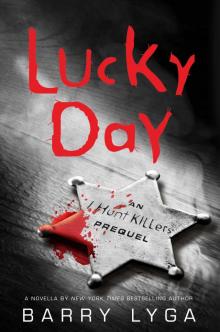 Lucky Day
Lucky Day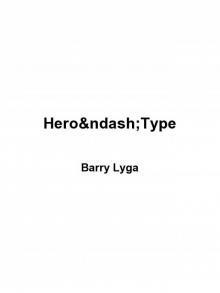 Hero-Type
Hero-Type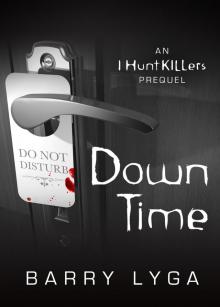 Down Time
Down Time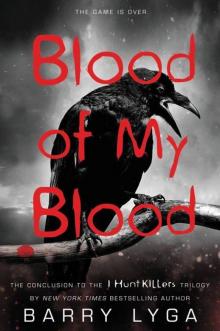 Blood of My Blood
Blood of My Blood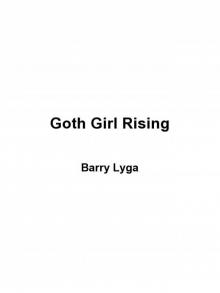 Goth Girl Rising
Goth Girl Rising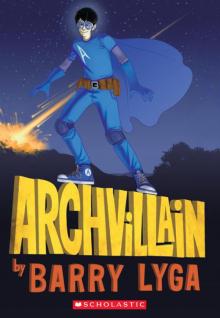 Archvillain
Archvillain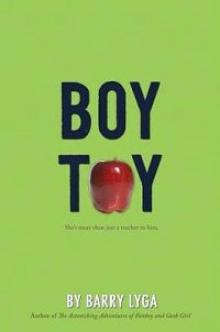 Boy Toy
Boy Toy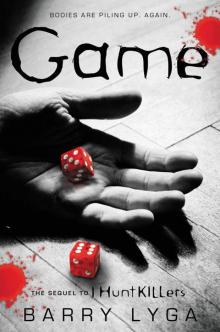 Game
Game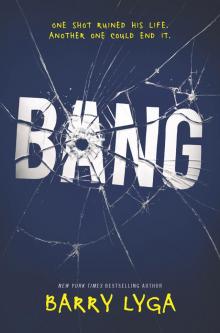 Bang
Bang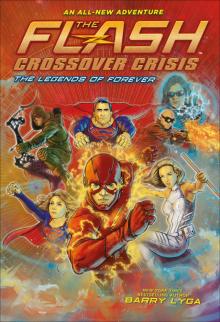 The Legends of Forever
The Legends of Forever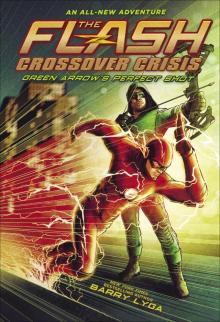 The Flash: Green Arrow's Perfect Shot
The Flash: Green Arrow's Perfect Shot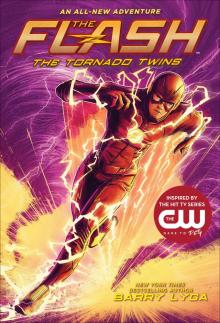 The Flash: The Tornado Twins
The Flash: The Tornado Twins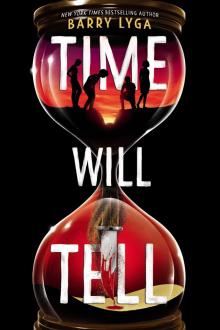 Time Will Tell
Time Will Tell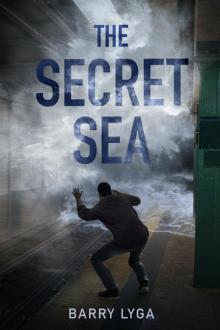 The Secret Sea
The Secret Sea The Hive
The Hive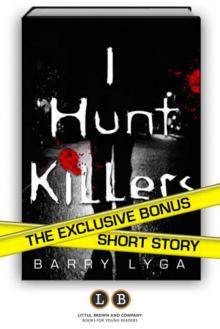 Career Day
Career Day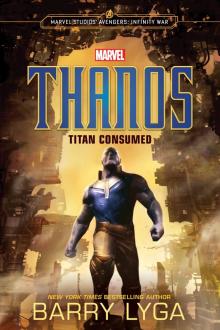 MARVEL's Avengers: Infinity War: Thanos
MARVEL's Avengers: Infinity War: Thanos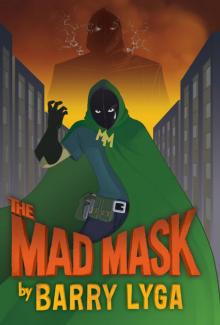 The Mad Mask
The Mad Mask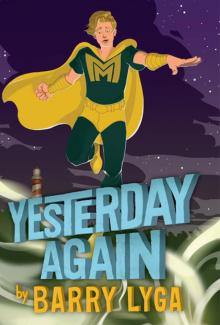 Yesterday Again
Yesterday Again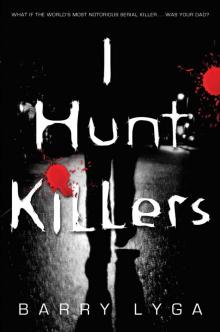 I Hunt Killers
I Hunt Killers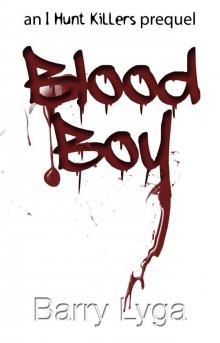 Blood Boy
Blood Boy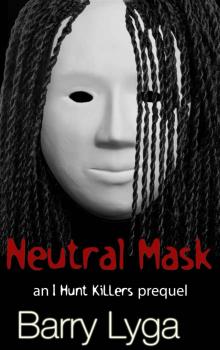 Neutral Mask
Neutral Mask The Astonishing Adventures of Fanboy and Goth Girl
The Astonishing Adventures of Fanboy and Goth Girl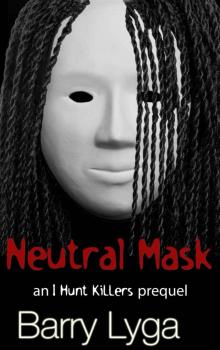 I Hunt Killers Neutral Mask
I Hunt Killers Neutral Mask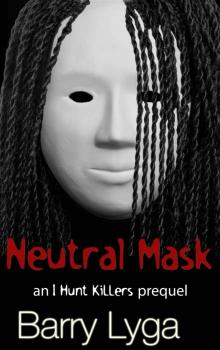 Neutral Mask: an I Hunt Killers prequel
Neutral Mask: an I Hunt Killers prequel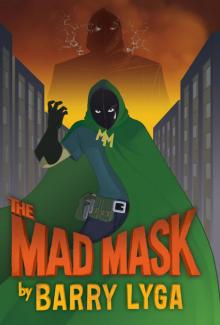 Mad Mask
Mad Mask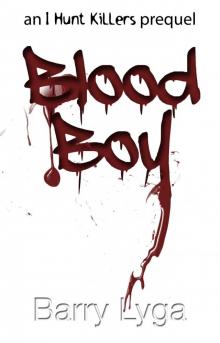 Blood Boy: an I Hunt Killers prequel
Blood Boy: an I Hunt Killers prequel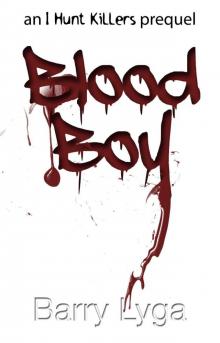 I Hunt Killers Blood Boy
I Hunt Killers Blood Boy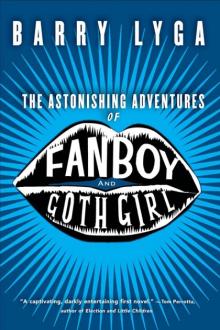 The Astonishing Adventures of Fan Boy and Goth Girl
The Astonishing Adventures of Fan Boy and Goth Girl